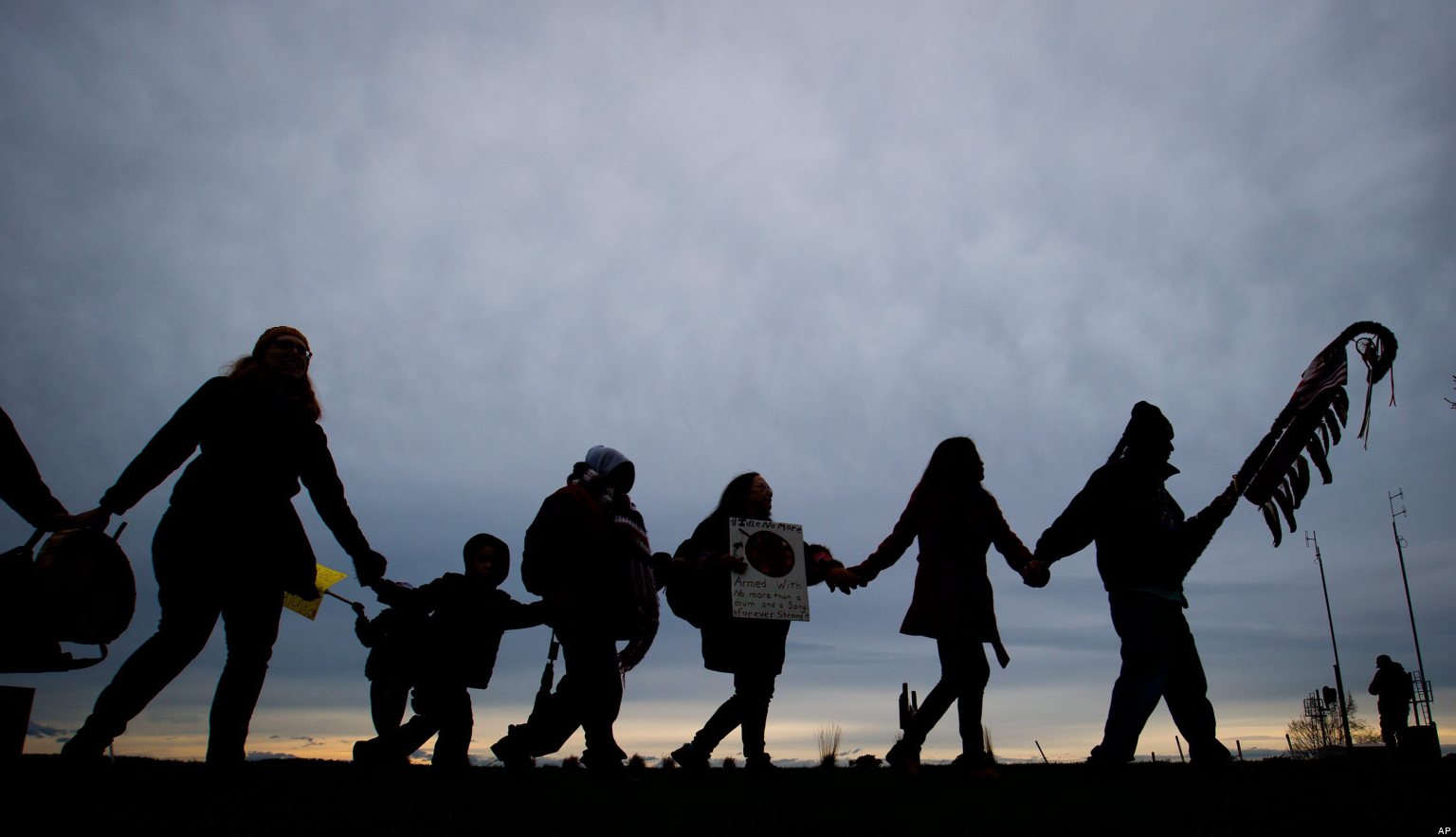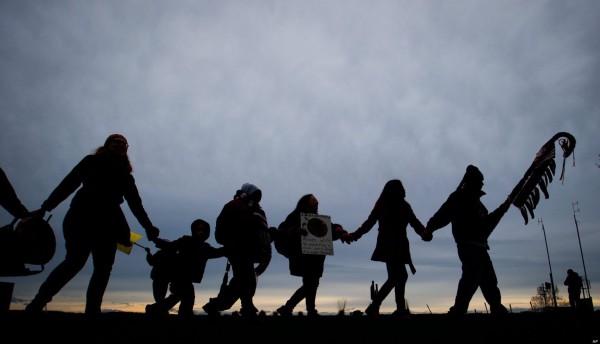A report from the UN Human Rights Council found that the steps Canada has taken towards securing rights for First Nations peoples have proven “insufficient”. The report was written by James Anaya, the Special Rapporteur on the rights of indigenous peoples, after a nine-day trip in October 2013 across six of Canada’s provinces. During Anaya’s brief visit, he found that the gap between the well-being of aboriginal and non-aboriginal Canadians has not shrunk at all in the past several years. The report notes that treaty claims by aboriginals often go unresolved and that aboriginal women are exceptionally vulnerable to abuse. Distrust of government is also extremely widespread in aboriginal communities.
The report calls for the Canadian government to prioritise indigenous peoples’ concerns, and to build stronger, more sustainable partnerships with aboriginal people’s institutions in order to formulate and execute solutions for the long term.
The Canadian government has a long and rough history with indigenous populations, and has been found responsible for what the report calls “notable episodes and patterns of human rights violations”. Indigenous Canadians have, throughout history, faced numerous human rights violations, as well as barriers to services offered widely to non-aboriginal Canadians. They have been denied access to the court system for the resolution of land concerns and were forced through over a century of assimilation policies aiming to erase their culture, a violation drawn out from 1874 to 1996, when aboriginal children were forced into residential schools designed to deny them their cultural identities.
Over the last few decades, an ongoing process of gradual reform has begun to restructure the Canadian government’s relationship with aboriginal Canadians.
Despite the fact that many aboriginal communities demonstrate a heavy need for social services, Canada has not, according to the report, invested a proportionately higher share of resources to services in those communities.
Canada maintains a policy of treaty negotiation with aboriginal populations and maintains several federal and provincial programs aimed at protecting the rights of aboriginal communities, but the report nonetheless notes that it is “difficult to reconcile Canada’s well-developed legal framework and general prosperity with the human rights problems faced by indigenous peoples in Canada”. The report lists education, health, welfare, social services, and housing as areas in urgent need of increased funding, and highlights the significant disparities between the access to government funding and services between aboriginal and non-aboriginal Canadians.
Despite the fact that many aboriginal communities demonstrate a heavy need for social services, Canada has not, according to the report, invested a proportionately higher share of resources to services in those communities. One example highlighted in the report is an annual $200 million gap between funding for the promotion of Canada’s two official languages and funding for the protection of 90 indigenous languages, two-thirds of which are on the verge of being wiped out entirely.
Widespread housing shortages have contributed to continued poverty in many aboriginal communities. According to the report, investment in new housing for aboriginal communities has been far outstripped by demand, with the resulting overcrowding linked to respiratory disease, domestic violence, and even bad grades. While the federal government has provision for housing on reserves, people living on reserves require further investment in order to meet the demand for affordable housing.
The disparity in health outcomes between aboriginal and non-aboriginal Canadians is significant despite improvements in recent years. Healthcare for aboriginal communities is paid for and provided jointly by federal, provincial, and local services, which can make coordination a complex affair. Parents who attended residential schools as children experience higher rates of psychological problems, substance abuse, and a lack of parenting skills that would have otherwise been transmitted between generations. These factors have contributed to the comparatively high rate at which children from aboriginal communities are taken by child services.
The UN report from the Special Rapporteur on the rights of indigenous peoples acknowledges the progress that the Canadian government has made towards improving support for aboriginal rights, but also highlights the urgent need for further action.
Canada is conducting a number of initiatives to improve the socio-economic welfare of aboriginal Canadians, but according to the report, “Daunting challenges remain.” The report puts forth a set of fifteen recommendations for the Canadian government, covering social and economic conditions, natural resource management, reconciliation for victims of the residential schools program, improved provisions for self-government and partnership, new treaty negotiation processes, and a request for a national inquiry into the problem of missing and murdered indigenous women.
The inclusion of provisions to protect the rights of indigenous peoples in Canada’s 1982 Constitution made Canada a global leader in the development of legal frameworks to support the rights of aboriginal Canadians. The UN report from the Special Rapporteur on the rights of indigenous peoples acknowledges the progress that the Canadian government has made towards improving support for aboriginal rights, but also highlights the urgent need for further action – for Canada to promote and defend the rights of all Canadians in practice as well as in writing.





